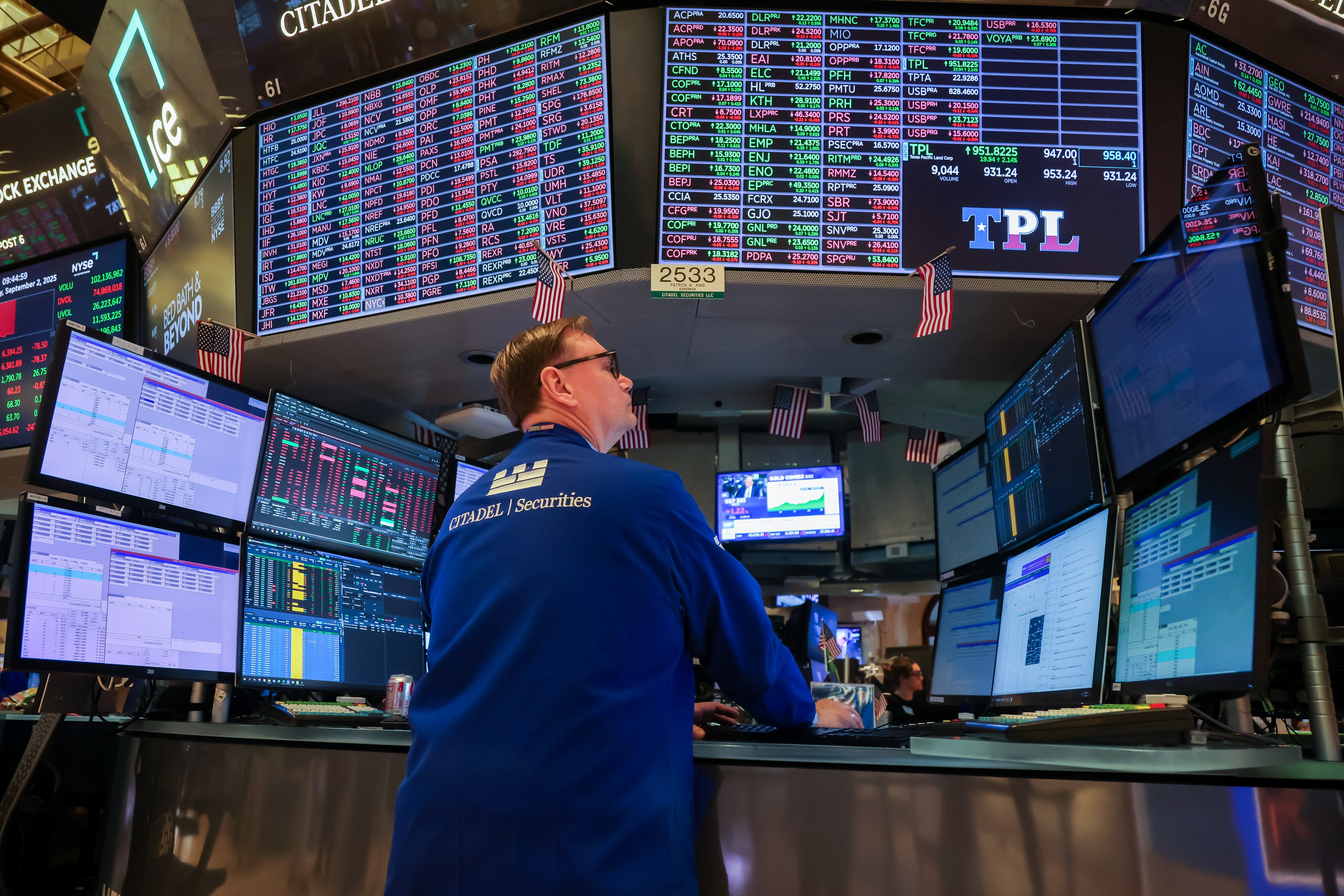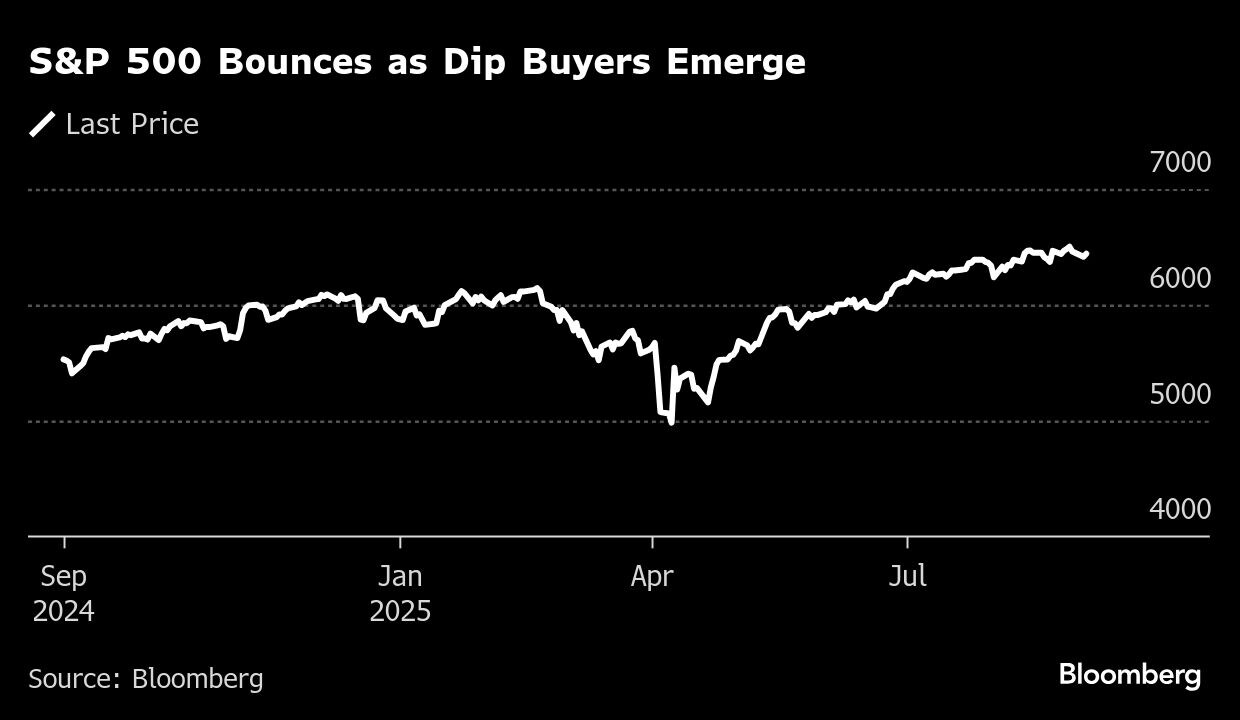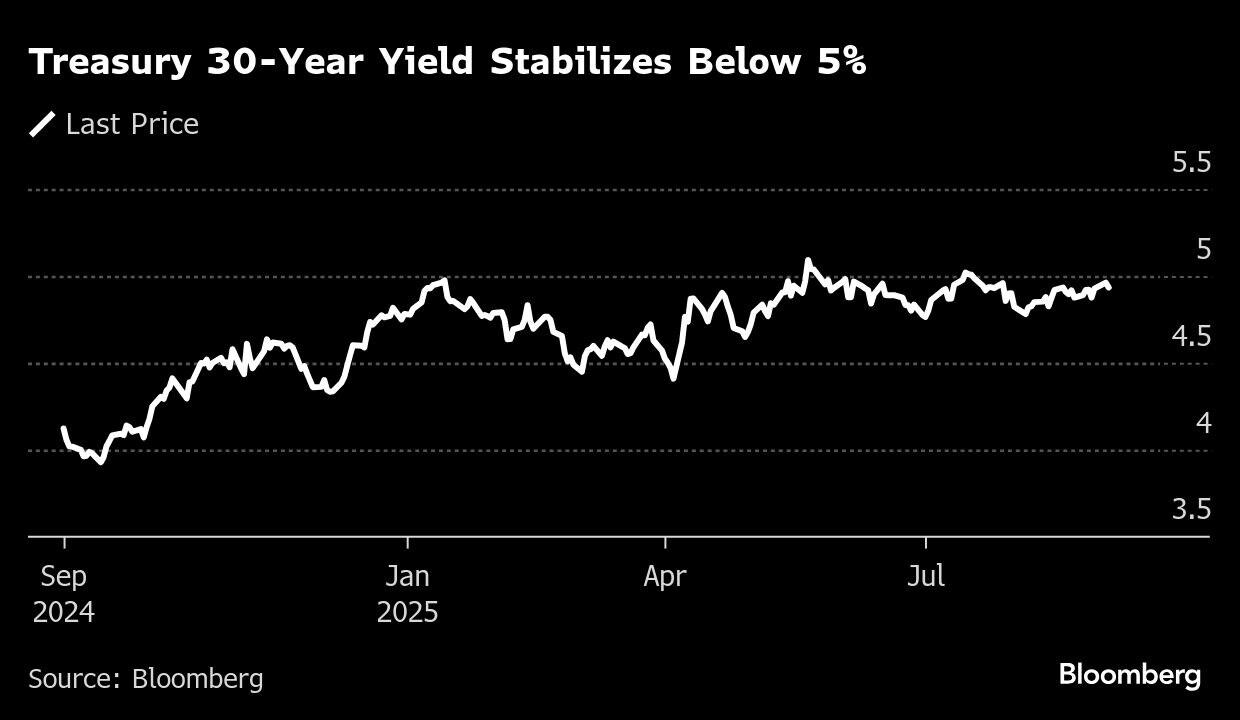
A rally in the world's largest tech companies drove stocks higher as bond yields fell after weak jobs data reinforced bets the Federal Reserve will resume cutting rates in September.
Just days ahead of the US payrolls report, a slide in job openings to the lowest in 10 months boosted wagers on at least two Fed reductions in 2025. Treasuries rose across the curve following a slide that put the 30-year yield close to 5%. The S&P 500 also gained amid a court victory for Big Tech that saw Alphabet Inc.'s Google dodging a sale of its Chrome web browser.

Stocks bounce after rout.

Friday's jobs data from the Bureau of Labor Statistics will be a crucial input for Fed officials ahead of their September policy meeting. Some are less concerned about the slowdown in payrolls growth because it's being accompanied by a decline in the participation rate. They're also wary of reducing borrowing costs when inflation is gradually increasing.
Others, like Governor Christopher Waller say the US central bank should begin lowering interest rates this month and make multiple cuts in the coming months, but is open to a debate on the precise pace of reductions. He spoke on CNBC.

Corporate Highlights:
Alphabet Inc.'s Google avoided a breakup after a US judge ruled against the government's most onerous proposals, including a forced sale of its Chrome browser.
While it's barred from exclusivity deals, Google will still be allowed to pay its partners — a key win for Apple Inc., which has received roughly $20 billion a year for making Google search the default on iPhones.
After months of pain, Salesforce Inc. investors will be scrutinizing the software maker's upcoming earnings for signs it will be a winner in the artificial intelligence boom — or one of its most high-profile victims.
ServiceNow Inc. is offering federal agencies discounts of as much as 70% on its software, a move aimed at spurring adoption as the Trump administration presses for faster government implementation of artificial intelligence tools.
Macy's Inc. raised its annual outlook and reported its best comparable sales growth in three years, the latest signs that consumers are still spending despite concerns about inflation and tariffs
Dollar Tree Inc. said that profit for the current quarter would be little changed, which overshadowed the discount chain boosting its annual outlook.
Campbell's Co.'s earnings beat estimates as Milano cookies helped its snacks business outperform.
Michael Novogratz's Galaxy Digital Inc. is offering a version of its Nasdaq-listed shares that can be traded on the Solana blockchain, aiming to spur similar tokenization efforts.
The S&P 500 rose 0.4% as of 10:22 a.m. New York time
The Nasdaq 100 rose 0.7%
The Dow Jones Industrial Average fell 0.3%
The Stoxx Europe 600 rose 0.5%
The MSCI World Index rose 0.3%
Bloomberg Magnificent 7 Total Return Index rose 2%
The Russell 2000 Index rose 0.2%
Alphabet rose 7.4%
Apple rose 3.3%
Macy's rose 18%
The Bloomberg Dollar Spot Index fell 0.2%
The euro rose 0.3% to $1.1677
The British pound rose 0.4% to $1.3442
The Japanese yen rose 0.1% to 148.14 per dollar
Bitcoin was little changed at $111,317.04
Ether rose 2.8% to $4,433.46
The yield on 10-year Treasuries declined four basis points to 4.22%
Germany's 10-year yield declined four basis points to 2.75%
Britain's 10-year yield declined five basis points to 4.75%
The yield on 2-year Treasuries declined three basis points to 3.61%
The yield on 30-year Treasuries declined six basis points to 4.90%
West Texas Intermediate crude fell 2.4% to $64.01 a barrel
Spot gold rose 0.8% to $3,560.83 an ounce
Some of the main moves in markets:
Stocks
Currencies
Cryptocurrencies
Bonds
Commodities
Essential Business Intelligence, Continuous LIVE TV, Sharp Market Insights, Practical Personal Finance Advice and Latest Stories — On NDTV Profit.























